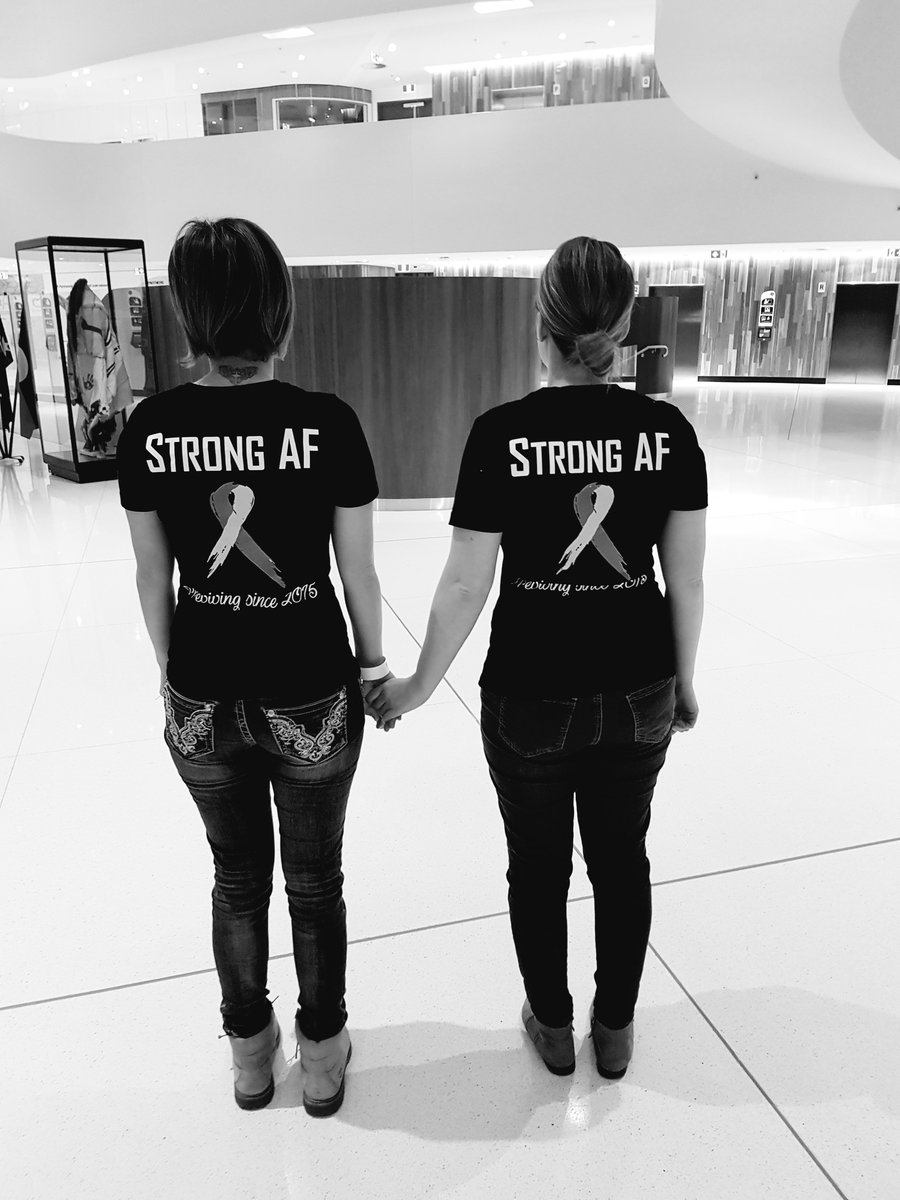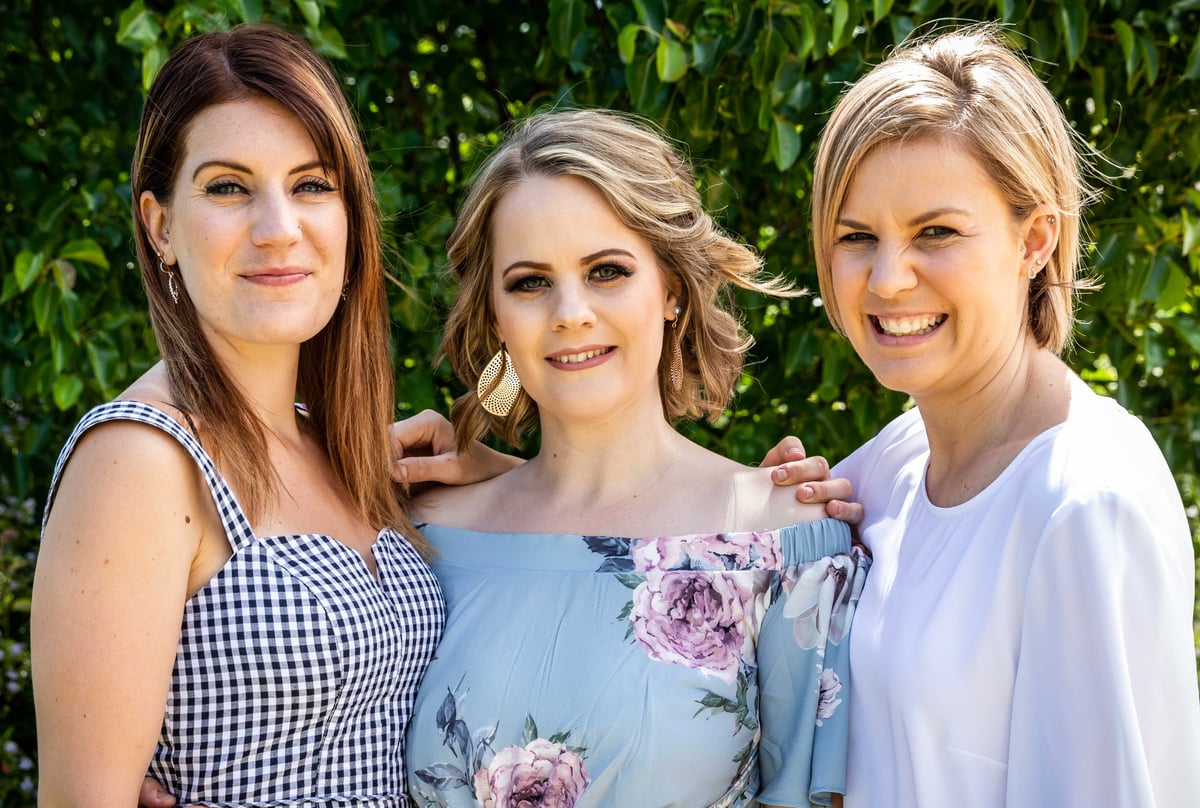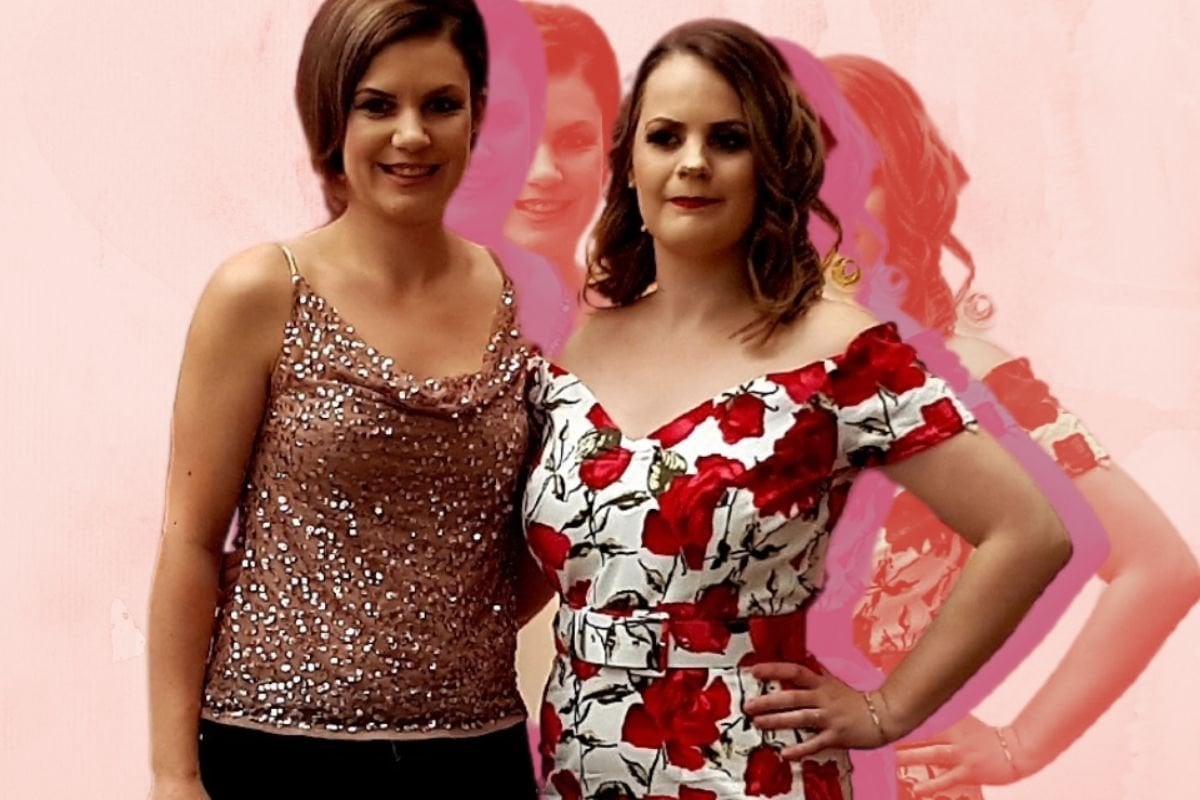
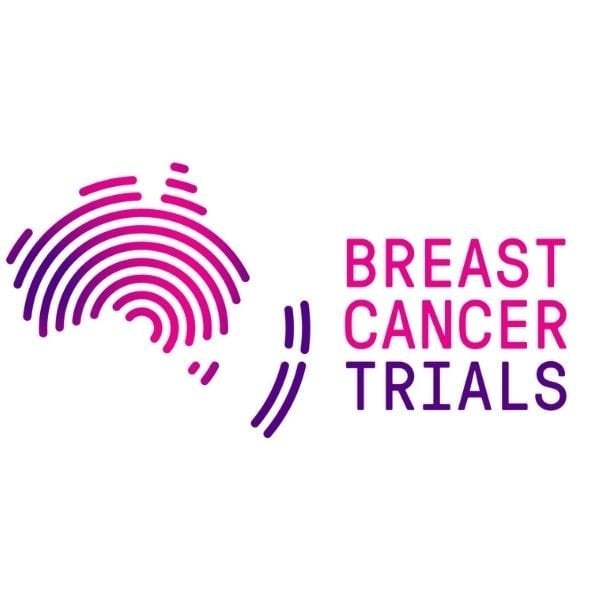
When sisters Michelle May and Julie Gaspero found out they carried the BRCA1 gene mutation, only one of them burst into tears.
While Michelle struggled to hold back her emotion as they were told they had a 70 per cent risk of getting breast cancer in their lifetime, and a 40 per cent risk of developing ovarian cancer, Julie knew this knowledge gave them power.
They'd had a gut feeling it would be a positive result given the history of breast cancer in their family. Their paternal grandmother was diagnosed in her early 40s. Two aunts, one in her 50s, were also diagnosed. And their father had only recently been told he had prostate cancer at 60.
But they were being given the opportunity at the age of just 28 and 26, to look into a potential crystal ball, and as Julie told Mamamia, "being able to take control of something and look at ways to eliminate that risk of developing cancer ahead of time was empowering".
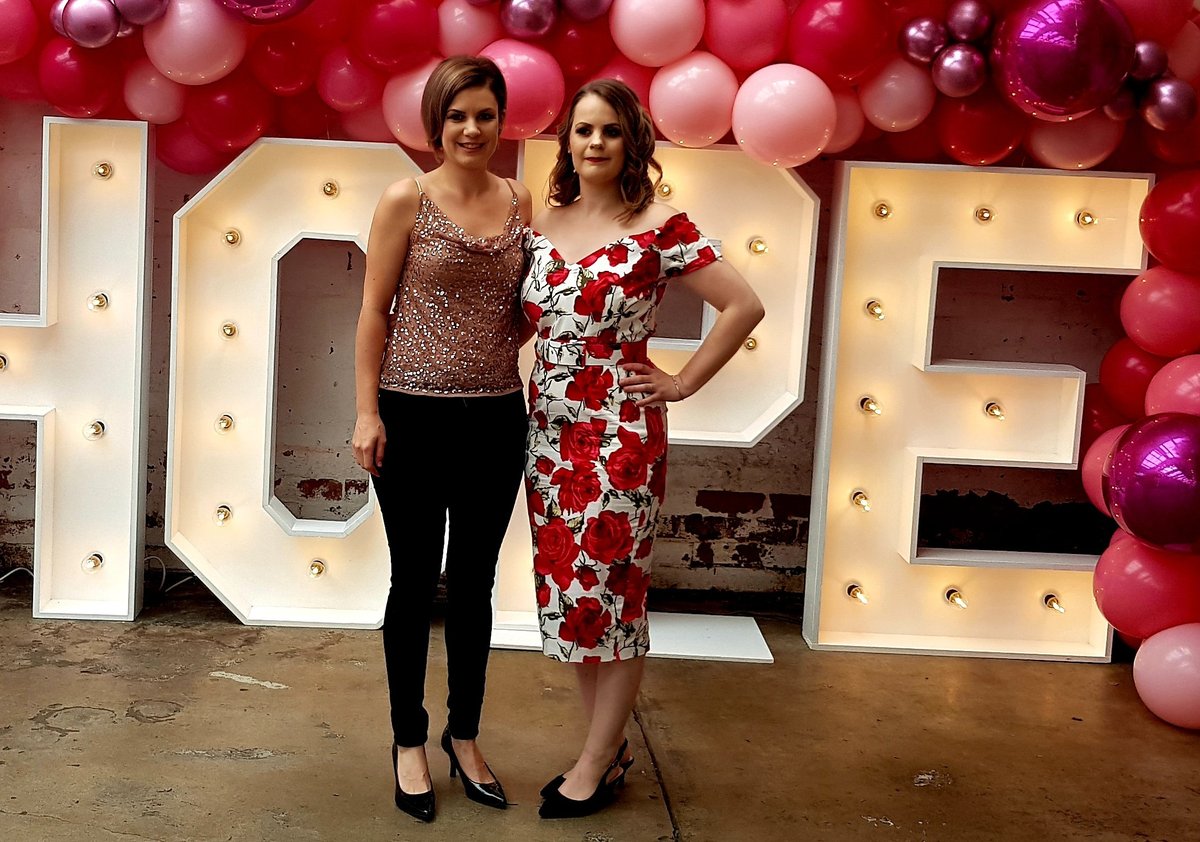 The Victorian sisters signed up for genetic testing after realising they had a strong family history for breast cancer. Image: Supplied.
The Victorian sisters signed up for genetic testing after realising they had a strong family history for breast cancer. Image: Supplied.
Their options however, were limited.


